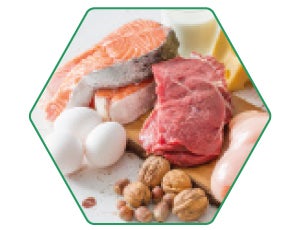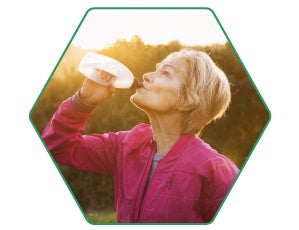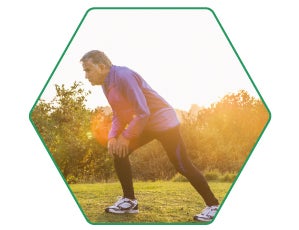Protein & Its Role FOR OVERALL HEALTH
After water our body is mostly composed of proteins. Indeed, proteins are the main component of cells and are essential to life. Proteins are often called “the building blocks of life”.
We use cookies to enable a better user experience. Please refer to our Privacy Policy to change your cookies settings. Otherwise we will assume you agree to continue.
Kami menggunakan 'cookies' untuk membolehkan pengalaman pengguna yang lebih baik. Sila rujuk Polisi Privasi kami untuk menukar tetapan 'cookies' anda. Jika tidak, kami menganggap anda bersetuju untuk teruskan.
Ok Read more
After water our body is mostly composed of proteins. Indeed, proteins are the main component of cells and are essential to life. Proteins are often called “the building blocks of life”.
Proteins have complex structures: they are made up of many smaller units called amino acids. These are linked together in a chemical bond forming a long chain. Some of these amino acids are called ‘essential,’ meaning they are crucial for life but cannot be produced by the human body and must be gained through one’s diet.
There are many different types of proteins in the body. For example:


Proteins have many crucial functions. Did you know?
Proteins are a type of macronutrient, which, along with carbohydrates and lipids, are needed by the body to function normally. Protein generally makes up 10% to 15% of the body’s energy needs. Our body is not able to store amino acids like it does for carbohydrates and fats. So we need a daily intake of amino acids through protein in our diets to make new protein. Protein should be consumed evenly across the day and be part of each meal.
Protein can be found in:
Older adults' challenge of getting enough protein
It’s common that people eat less food with age. Contributing factors can be lack of appetite, changes to smell and taste, living alone, little interest in cooking, or difficultly in eating due to teeth/gum or denture problems. Eating less or eating sub-optimally means that older adults often miss out on getting enough important macro and micronutrients, despite their need for many nutrients being higher.
Protein is a macronutrient of particular concern; a study1 showed that up to half of elderly people consume less than the daily recommended amount of protein. Inadequate protein intake is closely linked to loss of muscle strength and functionality.
How much protein do older adults need on a daily basis?




Additional sources support health benefits of protein for the adults
People with low protein intake have higher bone and lean muscle mass loss:
Older adults should seek to get enough protein through a healthy and balanced diet, and/or with the support of high quality nutritional supplements.
To learn more, read about Maintaining Mobility and The Allies for Healthy Aging.
Share